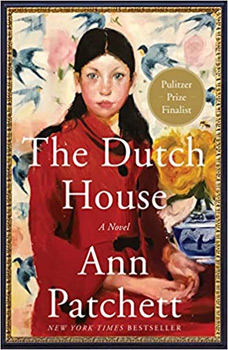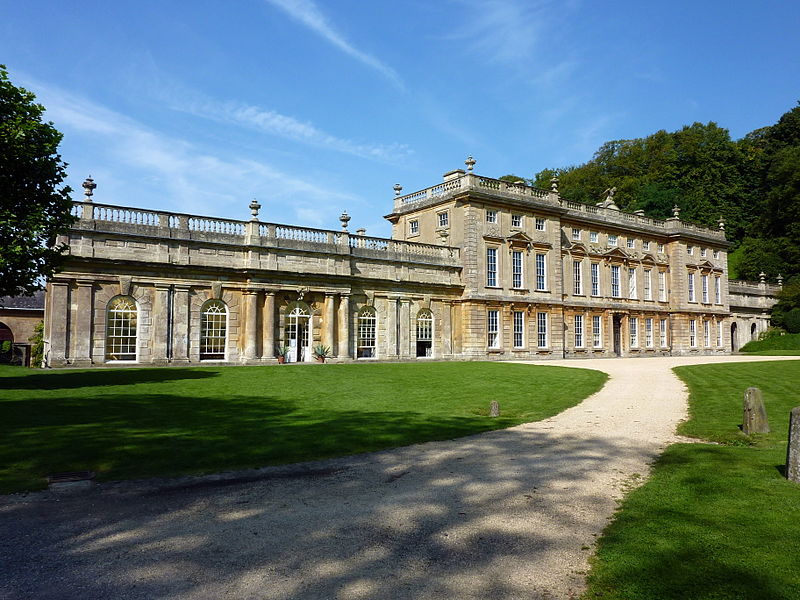Summary | Excerpt | Reading Guide | Reviews | Beyond the book | Read-Alikes | Genres & Themes | Author Bio

Ann Patchett, the New York Times bestselling author of Commonwealth and State of Wonder, returns with her most powerful novel to date: a richly moving story that explores the indelible bond between two siblings, the house of their childhood, and a past that will not let them go.
"'Do you think it's possible to ever see the past as it actually was?' I asked my sister. We were sitting in her car, parked in front of the Dutch House in the broad daylight of early summer."
At the end of the Second World War, Cyril Conroy combines luck and a single canny investment to begin an enormous real estate empire, propelling his family from poverty to enormous wealth. His first order of business is to buy the Dutch House, a lavish estate in the suburbs outside of Philadelphia. Meant as a surprise for his wife, the house sets in motion the undoing of everyone he loves.
The story is told by Cyril's son Danny, as he and his older sister, the brilliantly acerbic and self-assured Maeve, are exiled from the house where they grew up by their stepmother. The two wealthy siblings are thrown back into the poverty their parents had escaped from and find that all they have to count on is one another. It is this unshakeable bond between them that both saves their lives and thwarts their futures.
Set over the course of five decades, The Dutch House is a dark fairy tale about two smart people who cannot overcome their past. Despite every outward sign of success, Danny and Maeve are only truly comfortable when they're together. Throughout their lives they return to the well-worn story of what they've lost with humor and rage. But when at last they're forced to confront the people who left them behind, the relationship between an indulged brother and his ever-protective sister is finally tested.
The Dutch House is the story of a paradise lost, a tour de force that digs deeply into questions of inheritance, love and forgiveness, of how we want to see ourselves and of who we really are. Filled with suspense, you may read it quickly to find out what happens, but what happens to Danny and Maeve will stay with you for a very long time.
The varying descriptions of the house, inside and outside, before and after the siblings' exile, are atmospheric. It looms over everything that goes on, and it's easy to see why Danny and Maeve have remained so deeply affected by it. This is also the kind of novel you might put down many times after a certain line or two, thinking back to your own experiences and wondering how she could possibly know a piece of your life or your family so well...continued
Full Review
(833 words)
This review is available to non-members for a limited time. For full access,
become a member today.
(Reviewed by Rory L. Aronsky).
 Having moved 17 times in the wake of my late father being transferred at his job, I don't have a nostalgic connection to anywhere I've lived. The connection many people feel in their bones, heart and soul to a specific home is a mere curiosity to me—an interest in what people remember, how they seek to describe it. I live vicariously through those words, trying to imagine what it must feel like to have those emotionally immersive memories.
Having moved 17 times in the wake of my late father being transferred at his job, I don't have a nostalgic connection to anywhere I've lived. The connection many people feel in their bones, heart and soul to a specific home is a mere curiosity to me—an interest in what people remember, how they seek to describe it. I live vicariously through those words, trying to imagine what it must feel like to have those emotionally immersive memories.
The Dutch House is not the first time I've sought this out in literature. The fictional landscape of language, in all its varied forms, offers up so many different houses and so many different lives lived in them, that it's fascinating to read about how some characters embrace where they have ...
This "beyond the book" feature is available to non-members for a limited time. Join today for full access.

If you liked The Dutch House, try these:

by Ann Patchett
Published 2025
In this beautiful and moving novel about family, love, and growing up, Ann Patchett once again proves herself one of America's finest writers.

by Katherine Arden
Published 2025
During the Great War, a combat nurse searches for her brother, believed dead in the trenches despite eerie signs that suggest otherwise, in this hauntingly beautiful historical novel with a speculative twist, from the New York Times bestselling author of The Bear and the Nightingale.
Wisdom is the reward you get for a lifetime of listening when you'd rather have been talking
Click Here to find out who said this, as well as discovering other famous literary quotes!